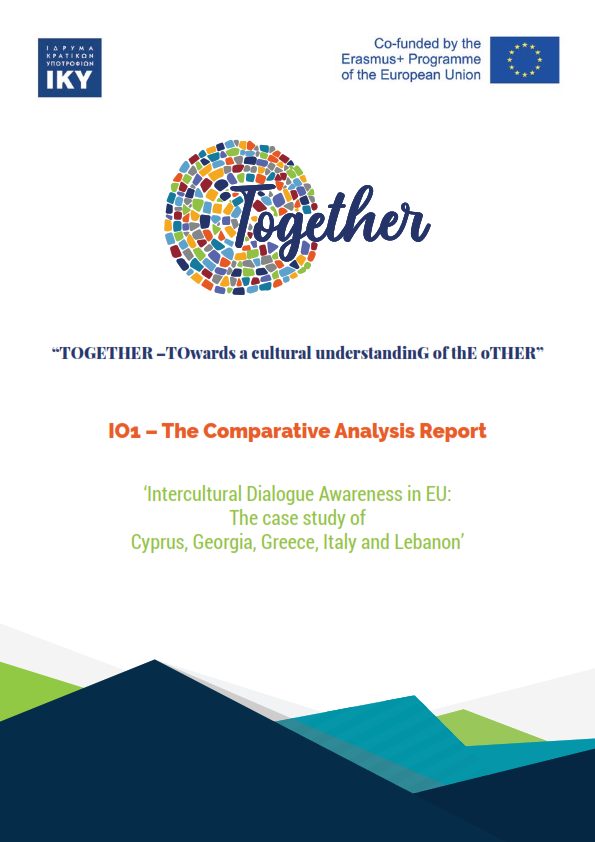
The TOGETHER Project's first output is a Comparative Analysis Report that presents the current state of awareness and development of intercultural dialogue in the Project's five partner countries—Cyprus, Georgia, Greece, Italy and Lebanon. It provides insights into how ICD is understood, shaped and reflected both in policy and in practice, identifies the needs of local actors involved in ICD, and outlines examples of best practice in each county.
The report demonstrates the mutual dynamics of current challenges and opportunities for intercultural dialogue in Cyprus, Georgia, Greece, Italy and Lebanon, which tend to complement rather than contradict each other. That said, context is evidently crucial in defining and applying ICD in policy and in practice. Religious, ethnic, linguistic or other characteristics create different landscapes for the development of ICD in each country, and policies and approaches therefore need to be reinforced in accordance to specific contexts (e.g., the challenges of migration to Europe, Georgia's Soviet legacy and ethno-political conflicts, inter-faith and inter-ethnic disputes in Lebanon). Nevertheless, both the survey's respondents and the interviewees were united in stating that respectful cultural encounters, mutual understanding and constructive dialogue are the foundation for building cohesive and sustainable societies despite differences in lifestyle, values, traditions and belief.